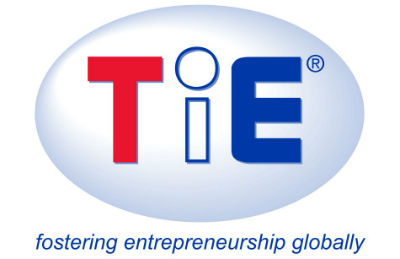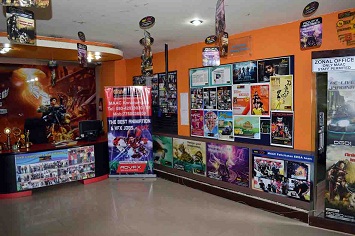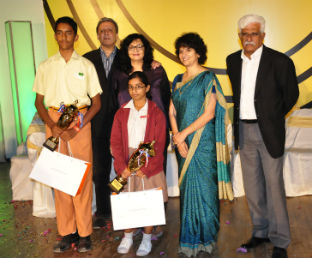The Indus Entrepreneurs: Your Rich And Powerful Friends
Oct 11, 2019, 11 32 | Updated: Oct 11, 2019, 11 32
TiE works towards encouraging entrepreneurship and is looking for more success stories coming out of Bangalore.
TiE was back in the news recently, because the founders of RedBus (whose company European travel player Ibibo bought for a reported Rs 700 crore) credited TiE for having “mentored” them through their success.
What an entrepreneur with a start-up needs most is capital i.e., start-up money. But the path to money is often a hard slog and most times, entrepreneurs have no idea what the flavour of the month is for venture capitalists and how to pitch them an idea.
Many entrepreneurs are also people who aren’t necessarily trained management or technology executives. Giving up the safety of a 9 to 5 and plunging into the shark tank of the business world is fraught with risk; with every success story matched by a number of horror stories of failed entrepreneurship.
So, wouldn’t the nicest thing for the would-be entrepreneur be to have a bunch of rich, successful and highly connected friends? Would that be the best way to describe the folks at TiE? We asked the president of the Bangalore chapter of TiE, Naganand Doraswamy, about what they do and how Bangaloreans with good ideas can take advantage of them.
Q. How is TiE beneficial for the young, aspiring entrepreneur in Bangalore?
TiE’s goal is to foster entrepreneurship. We look at three important areas—mentoring, networking and educational. What we try and do through TiE is-- expose a budding entrepreneur to all these three aspects, which we feel are fundamental to entrepreneurship. Beyond that what happens and how things go? You know, there are too many variables that one can’t control but we help them with these aspects.
More importantly, if you look at our mentors, they are typically our charter members. Charters members are By Invite only. These are people who have achieved something already and are capable of mentoring, who want to give something back to the society.
We are a non-profit and are not in it to make money. We don’t fund, we don’t have our own money to fund companies. Its purely to encourage people to answer questions that potential entrepreneurs have, and ensure that they are on the right track and then do whatever it takes.
So is this a network of people that provides a platform for budding entrepreneurs to get in touch with VCs?
No, not necessarily getting in touch with VCs. Funding is one aspect, we classify that under networking. Through networking we expect them to talk and connect with VCs or angel investors or other people. We are also strongly connected in the community whether it’s IAN in Bangalore or other big VCs. Some of the VCs are our charter members. So, venture funding is something that could happen by the way, but basically it just gets the people the platform to start someplace.
Q. How does one approach TiE?
TiE is an open organization. Anybody can become a member, unlike some other bodies, which are based on corporate membership. We have a no holds barred outlook on who can become a member. And once you become a member, how you utilize what TiE has to offer is to a large extent dependent on you. So if you’re an entrepreneur, we believe it’s up to you to figure things out, to talk to people, etc. But people are not very accessible. If someone writes to me, I’ll respond to them saying this is what you need to do but to make it a lot easier, we have these social events where its just networking in the evenings. It’s not related to any particular knowledge session or network where someone is talking about something. It’s all about going to a place and getting to know people. And then, for those who have just started something new, we have monthly events that will get them on board, tell them what TiE is all about, how to approach things, etc. We have the TiE centre where people can go for more information and guidance. We try to keep it very open.
Q. What kind of ventures does TiE support?
Look, we are agnostic of the industry. But it so happens that there is more concentration towards IT oriented companies today. We are interested in early stage ventures; so we don’t typically work with guys who are already, say in the final round or series A, series B. The only way we can help them is by setting them up with TiE US Silicon Valley or TiE Dallas and all that. We can help them expand in that way. But typically, in case of companies or entrepreneurs who are in series A, already have a VC and a board, then those are the guys who kind of help you, mentor you and take you forward.
And if you look at our special interests group, we have retail, we have clean tech, we have cloud, and so it’s varied. But out there its mostly technology oriented.
Q. How much money is too little money in venture funding?
Venture funding is multiple. So it’s either seed money where you go to family members-- which can be 10-20 lakhs, it can be angel money-- which can by anywhere between 75 lakhs to 3 crores, or you can do a VC stage series A which can be between 6-10 crores. So, I don’t really have a straightforward answer. It all depends on what you want to do, where you are in the process, how much you want to raise. That’s how it works. TiE will not tell you that. It is up to the entrepreneur or individual to determine that.
Q. On what basis are mentors assigned?
We are trying to implement a two-level mentoring. We have something called group mentoring where 5-10 companies or entrepreneurs will be presenting their ideas to a group of three mentors. If we feel that someone has reached a point where things can be taken to the next level and we feel that they’ll really benefit with one-on-one mentoring is when we put them on EAP (Entrepreneurship Acceleration Program). That’s what happened with Redbus. They were put on to EAP where Sanjay and Sameer (TiE mentors) sat with Phani (Phanindra Sama of Redbus) and helped them along the way. And it so happened that Sanjay and Sameer also funded them.
Please continue…
Redbus was a great story. Our focus in Bangalore is to… it’s a lofty goal, but to have more success stories. That’s what we are trying to do and the way we want to do it is by getting younger guys involved in TiE. We are kind of changing our attitude and our positioning a little bit to attract younger talent. That’s why we have started TiE Young Entrepreneurs (TYE) program where we have a board of 6-8 young guys who are under 30. So we’ve got Varun Agarwal of Alma Mater (author of “How I Braved Anu Aunty and Co-Founded A Million Dollar Company”) and a bunch of other guys. We are telling them to run 20-25 percent of the program so there are young faces and we bring freshness to the whole organization.
Q. So, does coming to TiE mean I will have rich and powerful friends?
Well, rich and powerful I don’t know but it will give you access to entrepreneurs. Our focus is on entrepreneurship and in the process if you become rich and famous, good for you. So, I’ll say you’ll have access to good entrepreneurs, they might not be rich and powerful like an Ambani, but they’ll give you the right level of advice and guidance. I think people should come to us because they are interested in entrepreneurship and they want to do something.
Q. Is TiE a Fund?
No, TiE is definitely not a fund.
We are very clearly a non-profit organization. But what we want to do in the process is make sure an entrepreneur has access to funds. Because funding is a completely different ballgame—there are VCs and Angels or incubators and accelerators these days. There are a lot of guys who provide the funds and thus, that works to one’s advantage and disadvantage at times. Advantage because as soon as you say funds, people will come to you. But its ok, I think we have our philosophy set right. We take you to a certain point from which it’ll be easier for you as an entrepreneur to move forward.
Although it can change… we’ll see. We will not manage our own funds, but if you look at Silicon Valley, they have TiE Angels where outside of TiE, all the TiE charter members have put some money, formed TiE Angel Angels and they fund just like any other angel group. But that is not TiE doing it. It’s an independent entity.
So truth of the matter is, when you have young guys/ entrepreneurs, they want access to some money. TiE cannot take equity, that’s not our structure. If we decide to do it, it’ll be through an independent model, we’ll have to figure out ways of structuring it.
So, as of now, we are not a fund. We are a registered Society.
Q. How old is too old to be an entrepreneur?
(Laughs) Ah, good. I personally think entrepreneurship has no age but that said, there are always energy levels. Typically in the US, VCs say if you’re beyond 45, you’re kind of hitting the limit. Only reason being the amount of energy and perseverance is incredibly high. And typically once you reach 45, you’ll look at reasons as to why something will not work as opposed to why something will. So some amount of cynicism will set in.
But this is a very approximate ballpark; to me it all depends on the individual. Someone can be a very successful entrepreneur at the age of 60, if they choose to be but on an average case, its 45—my personal opinion.
Q. What is the hot new tech idea you’d be interested in?
I don’t know about ideas but we look at industries. So, if I were to look at what is hot in the industry today? It’s technology coming out of cloud and mobile. And what specific idea you choose in that is what defines an entrepreneur.
Q. Are apps dead?
Well, to me, monetisation of apps is very difficult—because there is no stickiness factor. You have one app wonders where an app becomes famous for three months, makes a lot of money, then it goes away. So, there’s no stickiness unless and until it’s an app with a strong backend like Facebook or Google. I personally feel that it’s a tough market. I wouldn’t do it and I wouldn’t fund it. But if an aspiring entrepreneur comes to me with an idea for an app and he truly believes in it, I will certainly not discourage that.
--------------------------------------------
What is TiE
The Indus Entrepreneurs (TiE) was founded in 1992 in Silicon Valley by a group of successful entrepreneurs, corporate executives, and senior professionals with roots in the Indus region. There are currently 11,000 members, including over 2,500 charter members in 60 chapters across 17 countries.
In India there are 17 chapters with 15000+ members, a team of successful, young, energetic and enthusiastic entrepreneurs. Tie Bangalore was the first step towards TiE’s presence in the country. Started in 1999 with Nandan Nilekani as its first President, the sole mission of the chapter has been to make Bangalore the “Start-Up Capital” of the country. Under the able leadership of many industry stalwarts like Kiran Mazumdar Shaw, Ashok Soota, B.V. Naidu, Dr. Sridhar Mitta and Pradeep Kar, the Chapter has grown from about 190 members with 9 Charter members in 1999 - 2000 to over 1000 members and 120 Charter Members.
The Mission of TiE Bangalore is to enable budding entrepreneurs to Get... Set... Grow. The activities of the Chapter has increased considerably over the years and today it has regular monthly Networking meetings, TiE Institute Workshops, Deal Flow meetings, special events, Mentoring sessions, TiE Member Mixers, Guru talks and SIG meetings in Cloud, Cleantech, Retail, education, Women etc.
Naganand Doraswamy
Doraswamy has extensive experience in management and technology. He is a proven entrepreneur and is well networked in the community. He has over 21 years of experience in the industry and has held several leadership roles. He has participated actively in many standard bodies and has been an invited speaker in various panels and conferences such as Network+Interop. He is also an Angel Investor and has invested in 7 very early stage start-ups in various segments.
He co-authored a book on IPSecurity titled “IPSec: The new security standard for the Internet, Intranets, and Virtual Private Networks,” published by Prentice Hall.
He is currently the Executive Vice President and Co-Founder of Span - an IT services company, and President of TiE Bangalore chapter. When asked what it is about Bangalore that makes it such an entrepreneur-friendly city, his immediate response was, “Weather! You can’t find this kind of weather in any other city in India. And look, that’s an important aspect. Wherever you are, when you work, you should feel good.” He continued, “ I think it’s also the history of the city. The fact that we have so many public sectors, so many government research labs, it is just a place where things have happened. And I think government helped quite a bit in the 90s where they helped services companies start up and now we’re going to see the next wave—from services to product. Also, the technology access in terms of people that we can hire is immense. But weather is still number one.”







